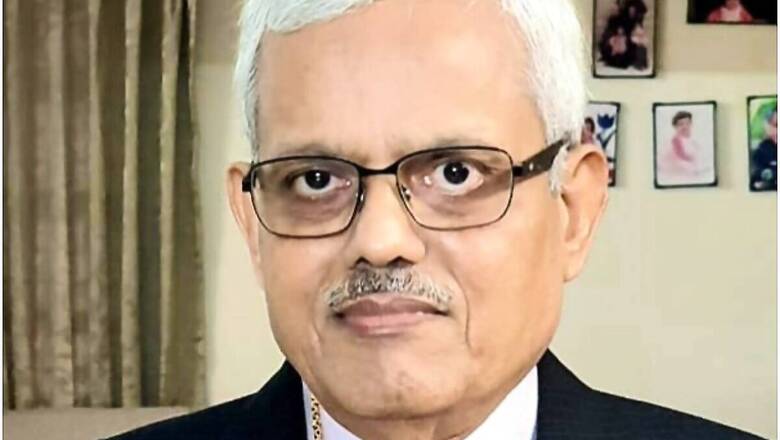
views
A year after the Coronavirus pandemic wreaked havoc on our collective lives, our society has been grappling with fear and insecurity. As a result, we have seen misinformation spread like wildfire, and many resorting to bizarre and incorrect methods of dealing with the virus. With this column, which will be published every Sunday, we aim to address any health or vaccine-related question our readers might have about the coronavirus pandemic.
In this week’s column, Dr. Neralla Subrahmanyam MS, MCh Neurosurgery, and former Prof. of Neurosurgery at AP Medical and Health Services, who is currently the President of the Indian Medical Association in Andhra Pradesh has replied to the queries. Dr. Subrahmanyam has addressed questions related to mRNA vaccine, plasma therapy, as well as Happy Hypoxia.
Why are so many people testing positive right after taking the vaccine? How can people differentiate between COVID symptoms and vaccination symptoms, after taking the vaccine dose?
WHO mentions that the vaccine would not cause positive test results for PCR or Antigen tests. This is because the tests check for active diseases and not whether the individual is immune or not. If a person takes a vaccine in the incubation period of Covid disease, the test may become positive after some days because of the disease and not because of the vaccine. Also, if by any chance, the person had got the virus during the vaccination process or just right after it, they might test positive. However, as WHO has repeatedly pointed out the vaccines cannot make you COVID positive.
Few people may experience side effects like headache, mild fever, body aches, pain or swelling, or redness at the site of injection of the vaccine. These symptoms subside in a day or two and may need analgesics like paracetamol. On the other hand, symptoms of Covid progress slowly over a period of 5-6 days. Cough, nasal discharge, throat pain, loss of taste or smell, fever, general weakness, and later, in some cases, breathing difficulty, depending on the severity of the disease.
Do mRNA vaccines work more effectively than non-mRNA vaccines?
A vaccine typically contains an agent that resembles a disease-causing micro-organism, and is often made from weakened or killed forms of the microbe, it is a toxin or one of its surface proteins. Vaccines produce antibodies that will fight against the virus. The anti-body response depends on the type of antigen used, genetic constitution, and the immunological status of the person. So, it is not the same in all persons. The data on various types of vaccines is still accumulating and is under study. The efficiency of mRNA vaccines is relatively more than other types of vaccines and depends on the factors mentioned. However, the vaccines available in India are very effective against Covid-19.
Now COVISHIELD’S gap has been increased from 6-8 weeks to 12-16 weeks. What happens to those people who took the second dose within 6 to 8 weeks? Do they not have adequate immunity?
There is no need to worry about the vaccine response, and protection against covid, if the second dose is taken at 4-6 weeks interval. They are still protected well against Covid-19. Covid-19 disease and its vaccination strategy is an ongoing process as we get more and more data and so there is a need for new guidelines.
What does it mean if someone has no side effects after vaccination? Does it mean that the vaccine is not working?
Every person taking a vaccine need not develop side effects. It doesn’t mean that the vaccine is not effective. The immune system of the body responds to the vaccine and develops anti-bodies after taking the vaccine and protection against Covid is established.
How does plasma therapy helps in COVID treatment? How does it work on COVID patients?
Blood donated by people who have recovered from Covid-19 has antibodies to the virus that caused it. The donated blood is processed to remove blood cells leaving behind the liquid (plasma) and anti-bodies. This can be given to people to boost their ability to fight the virus. In view of some risks involved in plasma therapy, its use is under review by WHO and ICMR.
Happy hypoxia is a worrisome COVID-19 effect. How does it impact the human lungs? Are there ways people can increase their oxygen intake in the lungs?
In normal conditions, the human body gives strong symptoms of hypoxia including intense headache, short breath and breathlessness. But in some Covid-19 patients, they continue to feel normal, even when their oxygen levels drop to dangerous marks. Oxygen saturation for healthy persons remains above 94% and can be easily measured using an oximeter. Such a drop in oxygen saturation can affect a range of vital organs such as the heart, lungs, brain, and kidney.
The main pathology of Covid disease is in the lungs with inflammation, pneumonia, blood clots, and other changes. As a result, oxygen transport through the lungs is affected leading to hypoxia. Frequent monitoring of O2 saturation with a pulse oximeter will help in detecting happy hypoxia. Breathing exercises especially in a prone position improves lungs expansion and oxygenation and it is advised. When 02 levels fall to critical levels, oxygen administration through a nasal tube or an oxygen mask or in severe cases intubation and ventilator support will be given.
Read all the Latest Buzz News here


















Comments
0 comment